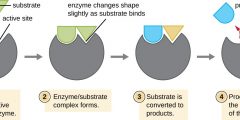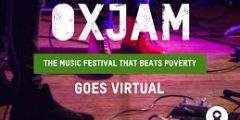Response to the Government’s National Data Strategy consultation
December 16, 2020
The UK Government recently invited contributions to its National Data Strategy consultation. Respondents were asked to address nineteen questions about the value of data to the UK economy and society, free access to data, data standards, security protocols, the sharing of data with international partners, and more. As the Government states on its website: The …
Launch of the University of Nottingham Automated Transcription Service
December 2, 2020
Are you a University of Nottingham researcher who records speech as part of your research? Do you transcribe this yourself or pass on the audio for others to transcribe? Digital Research and Information Services are pleased to announce the launch of the University of Nottingham Automated Transcription Service, a new capability built with funding from …
Making a podcast
October 13, 2020
Podcasts are a great way to engage a large and diverse audience. In this blog, we discuss what you need to plan, record, edit, and publish a podcast. STEP ONE: Planning Before you do anything, you’ll want to think about the following elements. They will help you manage your podcast and shape it into …
Learn how to train a Simpsons character classifier at home using Ludwig
September 25, 2020
Researchers may be wondering what tools are available for them to work on their datasets from home. In this blog, we highlight an open-source toolkit that allows researchers to implement machine learning architectures and deep learning models on their home computers with little to no coding. In this blog post you will learn about the …
Going Greener Digitally with Enzymes
September 22, 2020
Nature is the Best Chemist Nature is the best synthetic chemist, capable of manufacturing chemicals in an energy-efficient manner and with biodegradable by-products. Millions of years of evolution have explored and optimized reaction pathways, and we would be foolish not to exploit that chemistry. Critical to this efficiency are enzymes – biological catalysts – that are not consumed by …
From Subsystem to Super System – Windows Subsystem for Linux, a Gateway to HPC
September 21, 2020
If you are seeking to leverage the full extent of computational resources for your research, you are likely to end up using a Unix machine to run your software. This is especially true if you are developing software and data analysis pipelines on High-Performance Computing (HPC) facilities, like Augusta – our own HPC facility at …
Oxjam becomes Voxjam!
September 4, 2020
COVID-19 has profoundly disrupted the creative industries. The cancellation of in-person events, performances and exhibitions has seen a surge in the introduction of digital technology to allow people to still enjoy live events. By Paul Tennent and Steve Benford Oxjam is a national music event that raises money for Oxfam. Now in its 10th year, …
An Attempt at Automatically Classifying Political Leaflets Using Ludwig
September 3, 2020
In this blog, we discuss some innovative AI-driven work being undertaken in collaboration with Prof. Caitlin Milazzo from the School of Politics and International Relations. Ludwig is on open-source toolbox that allows the training and testing of deep learning networks without the need to write any code. In this pilot study we wanted to see …
Running an online poster session
September 1, 2020
In this blog, we look at options for hosting an online conference poster session. Teams can facilitate meetings of up to three hundred people and is a good option for those wanting to run virtual events. With a little creativity, you can easily incorporate a poster session into a Team. There is no fixed way …
Programming – it’s all a question of style!
August 24, 2020
Today we look at the creation and potential reuse of programming code. An inordinate amount of code is created by researchers and academics at the University, but how much of it is ever reused? Is it possible to reuse it, potentially by someone from another faculty, school or department? Can it be easily understood by …












Recent Comments